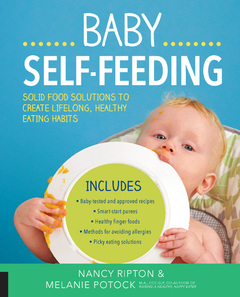What Should You Be Feeding Your One-Year-Old?

Unfortunately weight gain is becoming an issue for kids as young as two. Learn about your baby's nutrition requirements early to start your child off on the right track.


How do you know if your baby is teething? What does your baby's smile really mean? Is your baby ready to start solid food? Just The Facts, Baby is here to answer all your baby questions and give you the baby facts you need.

Unfortunately weight gain is becoming an issue for kids as young as two. Learn about your baby's nutrition requirements early to start your child off on the right track.

The toddler years are an important time in your child's development, says Joanne Saab, a registered dietitian and co-author of Better Baby Food. "And because it's a time when children are generally still willing to explore new foods, it's a good time to establish healthy eating habits."

Avoiding peanuts in the early years may boost your child's risk of developing a life-threatening peanut allergy.

Food allergies can be an underlying cause of many childhood illnesses such as skin ailments, digestive issues or respiratory problems, but in many cases you can minimize, or even prevent, the onset of an allergic response. Here's what you need to know about food allergies:

Tummy time is important because it prevents flattening of the head and enhances motor development. “Tummy time teaches babies to push up on their arms,” says child development expert Lora Lesak. Motor development occurs from head to toe, so if a baby is slow to develop shoulder strength, delays will trickle down to rolling, sitting and crawling.